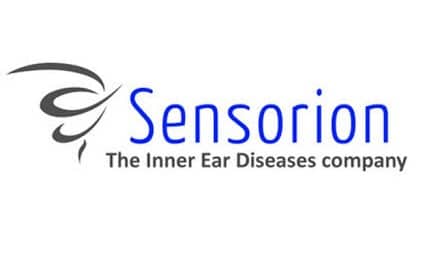MONTPELLIER, FRANCE — French biotech firm Sensorion announced promising new preclinical results obtained with its investigational drug SENS-401, which is currently under development to treat acute sensorineural hearing loss. The results were presented at the Annual Meeting of the Society for Neuroscience (SfN) in San Diego, California, last week.
Sensorion’s investigational drug, SENS-401 (R-azasetron besylate), aims to protect and preserve inner ear tissue, which the company hopes one day will lead to a treatment for sudden sensorineural hearing loss.
Promising Animal Study Results
In the SENS-401 “proof-of-concept” study, animals were exposed to a 120 dB noise level for two hours, then randomly treated over 14 consecutive days with either a placebo or increasing doses (5 mg/kg, 10 mg/kg and 20 mg/kg) of SENS-401, administered orally. Following 14 days of treatment, the residual hearing loss was approximately 52 to 59 dB in the placebo group, but just 33 to 49 dB in the group treated with SENS-401.
By day 14 the placebo group had recovered an average of 7.1 to 12.9 dB, while the treated group had recovered an average of 20.8 to 29.2 dB, resulting in an improvement of approximately 130% in their hearing recovery ability. A dose-dependent effect was also observed, with greater recovery at the highest doses of SENS-401 compared with the lowest dose or placebo.

Pierre Attali, MD
“On the basis of these positive results, we intend to continue the clinical development of SENS-401 in this particularly-debilitating pathology for which there is currently no effective treatment,” said Sensorion’s Chief Medical Officer, Pierre Attali.






